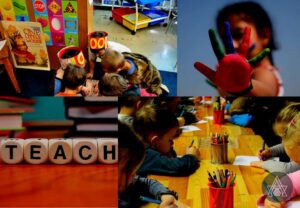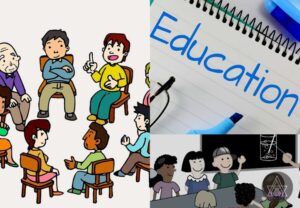The Value of Critical Thinking in Education
What is critical thinking?
Ability of making decision or solve a problem by observing is called critical thinking. It is the capacity for clear thinking. It helps to provide the best results possible in any circumstance. Decision-making and problem-solving may be approached with clarity, logic, and a methodical approach when using critical thinking. As a result, this produces smarter choices, creative fixes, and superior results. Critical thinking play an important part in education. This article share the value of critical thinking in education and how to practice the critical thinking among students.
Values of critical thinking in education
Develop creativity of a student
A child who learns how to think critically usually grows curious about the world around him or her. From that they tend to search new things around them. When they get a question about something they tend to solve the problem by analyzing the information what they observed. From that they formed their own ideas. It is help to improve the creativity of students.
Help to make innovators and problem solvers
Critical thinkers are good problem solvers. Because they have an ability to analyze information and make good decisions. First they identify the problem and find the information about the problem. Then they assess the relevancy of the data and finally make a best solution. Sometimes solving these problems lead to the discovery of new things. This is how scientist were born.

Increasing the life skills
Just a few of the life skills that thinking critically promotes include planning, organization, open-mindedness, and communication. One life skill that helps you get over obstacles in both your personal and professional lives is critical thinking. It encourages independence and self-assurance, which result in successful lives.
Improve the ability of decision making
People with critical thinking abilities are able to make decisions that are supported by logic and evidence. Students who practice critical thinking are better prepared to make judgments based on logic and facts rather than feelings or preconceived notions. Better decisions in all spheres of life, from personal to professional, may result from this.
Improving the academic performance of students
This is also one of main benefits of critical thinking of students. Critical-thinking students are more inclined to achieve success in their educational pursuits and succeed academically. This is so that students can study material, assess arguments, and reach well-informed conclusions. They are thus more capable of comprehending challenging ideas, finding solutions to issues, and successfully communicating.

In education, the ability to think critically is very important. It encourages the students to think on their own to solve challenging issues, and to arrive at reasoned judgments. On the other way education may help students develop critical thinking abilities, which are useful for improving academic achievement, preparing them for the job, making better decisions, fostering innovative thinking and creativity, and promoting lifelong learning. Therefore, it is essential for educators to impart the ability to think critically and to give children opportunity to do so.
There are many ways to practice critical thinking of students. Teachers can develop the critical thinking ability of students by encouraging students to think critically, encouraging to ask questions, by teaching students to analyze the information and provide opportunities to reflection. Flowing are some ways to practice the critical thinking to students,
Trans facilitations
Students are required to take an article or tale and create something fresh as part of this exercise. For instance, they may transform a news piece into a poem or a cartoon. Alternately, students can rewrite a narrative by altering some of its components, such the location or historical era.
Conducting Socratic Seminars
This is a student discussion method. From this method, participants ask each other probing questions on a subject. They pay serious attention to one another’s remarks and consider various viewpoints critically.
Debates
Classroom discussions like debates naturally instill critical-thinking abilities because they require students to create and justify their own beliefs as well as take into account and react to opposing viewpoints. This is in addition to igniting a dynamic discussion.

As previously mentioned, the term “critical thinking” is frequently employed in educational settings. Adults are urged to cultivate and use these talents in a range of contexts. Critical thinking entails evaluating and enhancing the ideas that have been developed, making an initial judgment about what course of action would best address the issue or which opinion about it is most logical, and then evaluating and enhancing that action or belief.
The importance of having strong problem-solving abilities cannot be overstated. The ability to solve issues having the potential to affect individuals more strongly both immediately and over time. It is crucial to acknowledge the ability to think critically as a practical talent. Critical thinking can and need to be taught in a guided way that offers students practice assessing and testing hypotheses. That are the value of critical thinking in education.







Can you be more specific about the content of your article? After reading it, I still have some doubts. Hope you can help me.